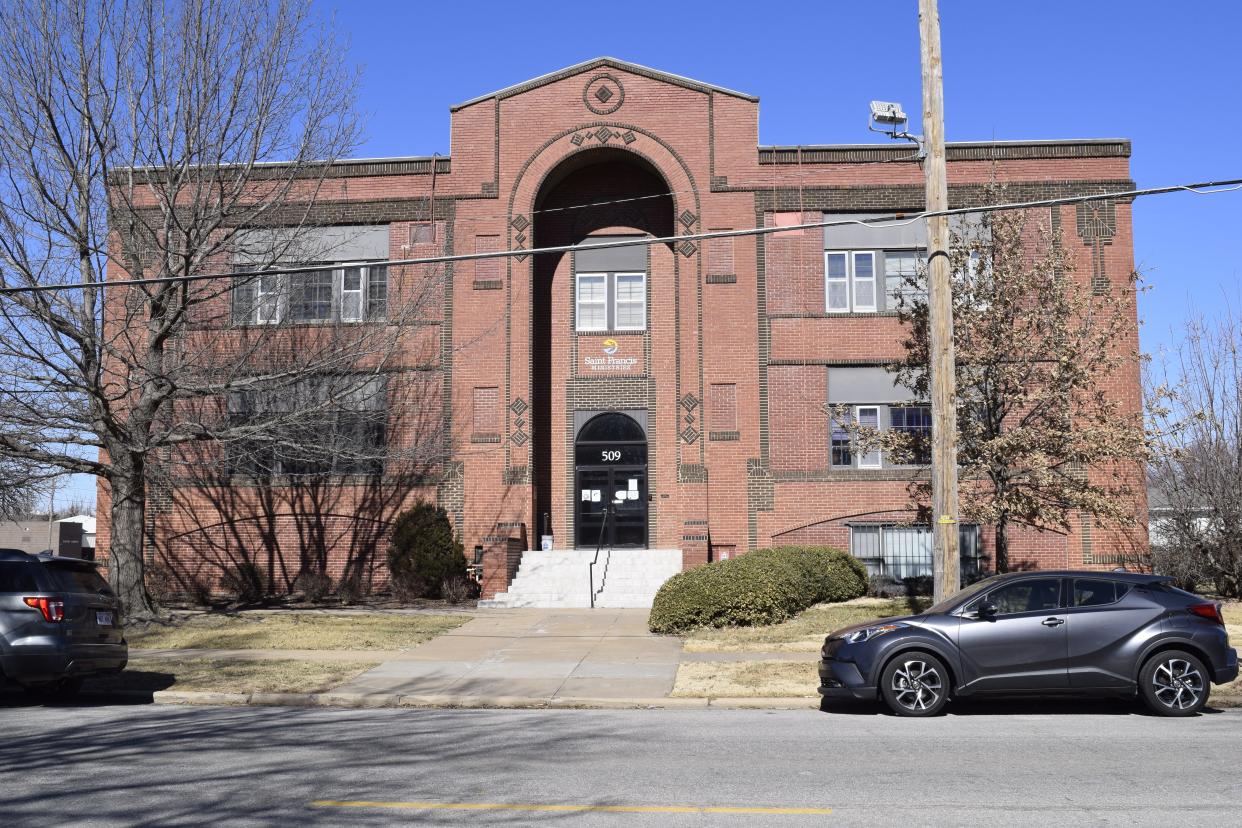Dunbar, Salina's school for Black children during segregation, celebrates 100-year anniversary

Paul Lawrence Dunbar School, where Black students in Salina from kindergarten through eighth grade learned for over 30 years, is celebrating its 100-year anniversary next month.
On Nov. 19, the Dunbar School Alumni Association is celebrating with a day full of activities.
Jennifer Gordon, who has collected much of the history of Dunbar and whose mother attended the school, said it is important its history is preserved.
"What I (learned) as a child and then growing up as an adult, as I interacted with the alumni, was that it was a very unique experience for them," Gordon said.
She said for the African-Americans who lived in Salina at the time, the school offered a place where people who looked like them were the teachers and principals and connections to the Black community.
A time of segregation
Gordon said the history of the school, and of segregation in Salina, is unique because all public schools were integrated until Dunbar opened. The city reached a population of 15,000 and was classified as a "first-class" city in Kansas, which allowed it to segregate schools at the primary level.
The school board brought the issue to a vote of the citizens to make the decision, but Gordon said it seemed inevitable that segregation would happen.
"All the cards were already stacked in that deck that the separation was going happen," Gordon said. "They had an architect that was already on board (and) had drawings ready by the time that vote took place."
The high school continued to be integrated, but Dunbar remained the sole school for Black students between kindergarten and eighth grade until 1955, the year after the Brown v. Board of Education of Topeka decision by the Supreme Court, which struck down the "separate but equal" system of schools in the nation.
More:Pioneer Hall at Kansas Wesleyan University set for nomination as National Historic place
A need to preserve the memories and history of Dunbar
Gordon said the alumni association is hoping this celebration, which is open to the public, will be a good way to continue the legacy of the Dunbar, especially as the number of people who attended the school shrinks as time goes on.
"What we found out as we were discussing (the celebration) is that the youngest of Dunbar alumni are in their 70s now," Gordon said. "It's really a unique and special group."
She said the purpose of the association is to share this legacy with the students of today and the future.
"As the building closed and alumni have (passed) on, retired or moved away, the stories aren't as prevalent in the community as they once were," Gordon said. "This 100th anniversary gives us an opportunity, once more, to put that important history out in the Salina community and share that with not only adults, but young people too."
More:Tiny house being built in Salina to help homeless people in Missouri
Schedule of events for the celebration
A full day of events is planned for Nov. 19, which begins at 10 a.m. at the former Dunbar building, 509 E. Elm St., where Salina Public Schools will unveil a plaque commemorating the 100th anniversary, and a framed watercolor of the school will be presented to St. Francis Ministries, which now occupies the building. Following the presentation will be a tour of the school.
The next event will happen from noon to 1:30 p.m., where St. John's Missionary Baptist Church, 215 S. Chicago St., will host a luncheon for alumni and guests.
The event ends with a celebration program from 2 to 4 p.m. at Fitzpatrick Auditorium at Kansas Wesleyan University, 141 W. Claflin Ave., which will feature youth from across the community, including Boy Scouts and Girl Scouts posting colors and leading a flag salute in honor of Robert C. Caldwell, a teacher and principal at Dunbar and Scout Master for Troop 10 and alumna Virginia Belle Ricard, a national Girl Scout Board Member.
Gordon said hosting an event at KWU was fitting as the school had early connections to Dunbar.
"Some of the early African-American teachers of Dunbar were actually students at Kansas Wesleyan," Gordon said.
Also during the afternoon program will be a presentation of the history of the school, and a message from Oliver Green, an alumnus whose aunt, Bessie Green, was a teacher at the school the first year it opened and whose mother, Regina Green, was also a teacher at the school.
For more information about the celebration, which has all of its activities open to the public, visit the alumni association's website, www.dunbarschoolsalina.com. Those who would like to attend are asked to RSVP for any of the events they plan to attend and can do so by clicking the 100th Anniversary RSVP tab on the website.
This article originally appeared on Salina Journal: Salina's Black school during segregation marks 100-year anniversary

